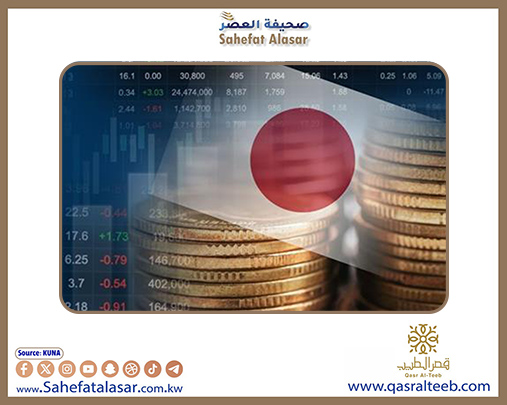


Government data released on Wednesday showed that Kuwait’s trade surplus with Japan fell by 52.7% year-on-year in May to 39.2 billion yen ($252 million), marking the fourth consecutive decline, driven by slowing exports.
Japan’s Ministry of Finance noted in a preliminary report that Kuwait has maintained a trade surplus with Japan for 17 years and four months, thanks to higher export values compared to imports.
The report stated that Kuwait’s total exports to Japan dropped by 34.7% year-on-year to 67.1 billion yen ($441 million), the fourth straight monthly decline. Meanwhile, Kuwait’s imports from Japan rose by 39.3% to 27.9 billion yen ($179 million), marking the sixth consecutive increase.
Regarding the Middle East’s trade surplus with Japan, the report revealed a 27.9% decline last month to 600.2 billion yen ($4.1 billion), as exports from the region to Japan fell by 18.5% compared to the previous year.
According to the report, imports of crude oil, refined products, liquefied natural gas (LNG), and other natural resources—which accounted for 93.6% of the region’s total exports to Japan—dropped by 19%. Meanwhile, the region’s imports from Japan rose by 10.4%, driven by strong demand for cars and machinery.
The report also showed that Japan, the world’s third-largest economy, posted a global trade deficit of 637.6 billion yen ($4.4 billion) in May, the second consecutive monthly shortfall.
Japan’s exports fell by 1.7% year-on-year, attributed to weaker sales of cars, steel, and mineral fuels. Meanwhile, imports declined by 7.7% due to lower costs of crude oil, coal, and non-ferrous metals.
According to official data, China remains Japan’s largest trading partner, followed by the United States.
